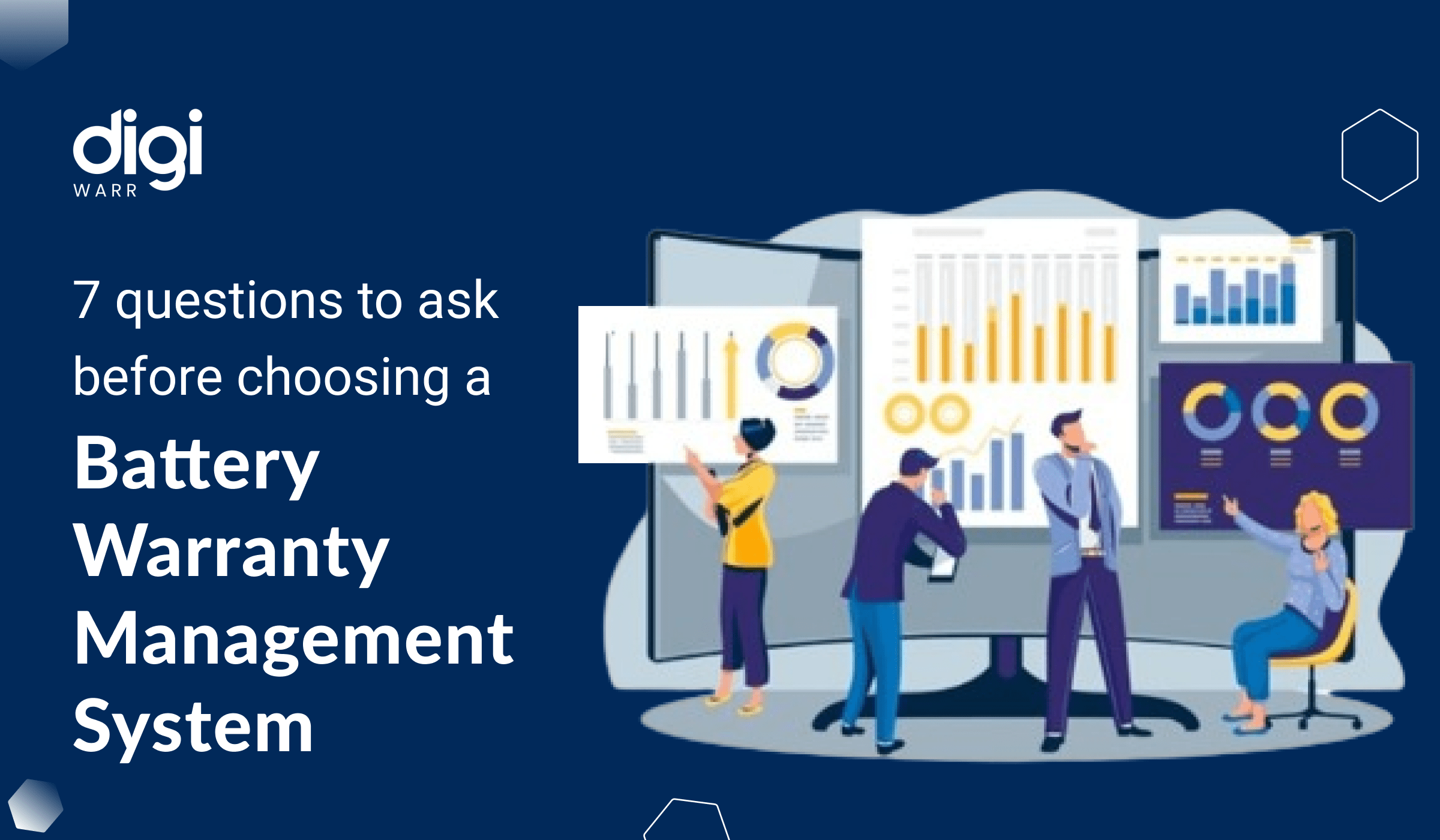
The significance of a strong Battery Warranty Management System in the ever-changing and dynamic world of battery solutions cannot be emphasized. Because consumers and businesses depend more and more on batteries for a variety of uses, such as powering electric cars and storing renewable energy, maintaining the durability and dependability of these energy storage systems is essential to the smooth operation of businesses. We will examine many important questions that decision-makers need to know the answers to before deciding on a battery warranty management system in this thorough investigation. This blog aims to explain the minute details that go beyond basic characteristics by offering a comprehensive analysis to assist organizations in making well-informed decisions.
Understanding the full scope of coverage of a battery warranty management system is crucial before approving it. Think about whether the system covers the entire range of battery technologies, from commonplace lithium-ion batteries to more conventional lead-acid versions, rather than just classifying batteries. Evaluating compatibility with the particular battery types used by your company guarantees a comprehensive approach to warranty management, providing extensive coverage for the whole range of your battery fleet.
Effective management relies heavily on a simple and user-friendly interface, but what does this actually mean in practice? Organizations should evaluate whether the Battery Warranty Management System offers sophisticated reporting tools, an intuitive dashboard, and advanced data analytics capabilities in addition to basic functionality. In addition to improving operational efficiency, a user-friendly system helps ensure a smooth warranty management process, which lowers the chance of errors and frees up teams to concentrate on strategic projects. It involves more than just keeping things simple; it also involves setting up a space that encourages output and well-considered judgment.
Scalability is not only an important requirement but also a desirable feature in the dynamic field of energy storage. An organization’s battery fleet expands with it. It becomes essential to find out about the scalability features of the system and whether it can easily accommodate the growing number of batteries that need to be managed. An organization can grow without sacrificing the effectiveness of warranty management procedures with a truly scalable battery warranty management system, which promotes flexibility in the face of changing energy demands. Scalability is a strategic advantage that enables organizations to achieve both operational resilience and sustained growth. It is not just a technological feature.
The key to cutting down on manual labor and minimizing mistakes in warranty management procedures is automation. Organizations should learn more about particular automation features rather than just inquiring about the amount of automation. Does the system smoothly process, document, and communicate warranty claims automatically? Sophisticated automated systems improve productivity and simplify processes while freeing up human capital for more strategic and high-value work. Automation is about designing a workflow that reduces human error and guarantees consistency, dependability and adherence to warranty procedures. It’s not just about saving time.
Adherence to industry norms and policies is essential, particularly in the energy sector where strict regulations frequently govern operations. It becomes crucial to ensure the Battery Warranty Management System you have chosen meets all applicable industry or regional regulations. This covers adherence to safety guidelines, data protection laws, and environmental standards. In addition to protecting your company from legal ramifications, such a system promotes accountability and moral business conduct. Regulatory compliance is a proactive approach to environmental and safety concerns and a dedication to moral business practices.
Battery data makes security an essential concern. Organizations should investigate every aspect of the security features built into the system, going beyond an initial inquiry. Does it use strict access controls, frequent security updates, and strong data encryption? In an increasingly interconnected digital landscape, having a solid understanding of the security framework protects your organization from potential cyber threats and unauthorized access by guaranteeing the confidentiality and integrity of battery-related information. Security is a proactive approach that protects against possible risks and guarantees the durability of battery warranty data against changing cyber security threats.
A Battery Warranty Management System is an investment that requires time and care, so it’s important to know what kind of maintenance and support the provider offers. Organizations should inquire further about the availability of continuing technical support. What is the frequency of update releases and does the provider have a clear roadmap for upcoming improvements? A thorough long-term support and maintenance plan protects your investment over time by ensuring that your system remains efficient, up to date, and compliant with new developments in the industry. Fixing problems is only one aspect of long-term support; another is a dedication to innovation, ongoing development, and making sure the system continues to be a valuable asset in the face of changing technology environments.
The process of choosing a Battery Warranty Management System is a complex decision that has an immediate influence on the productivity and efficacy of an organization’s battery-related activities. Organizations can make well-informed decisions and guarantee that the system they select seamlessly fits with their specific objectives and offers a strong basis for efficiently managing battery warranties by deeply exploring these seven crucial questions. Adopting a thorough strategy for managing battery warranties protects investments and sets businesses up for success in the quickly changing energy market, where flexibility and vision are critical.